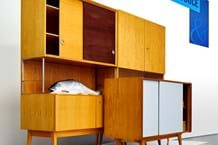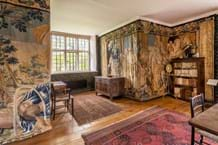Overall, although bidding was good enough in some areas and the sale attracted bids from America, Hong Kong, New Zealand, Russia and Europe as well as keen trade and private interest from Britain, the sale, with a turnover of 74 per cent and a total of £193,000, didn’t do as well as the auctioneers candidly admitted they had hoped.
“Estimates were set before current overseas events,” they pointed out, “which had an immediate effect on US and therefore home trade.”
But even before war broke out, the auctioneers had tried to lower a dealer’s sights on a 102oz Victorian silver claret jug which he wanted reserved at £4200. Typical of its kind, it was a piece of outstanding quality but even so the auctioneers felt a figure of £1500-3000 would be more realistic and encouraging.
On the day the dealer proved spot on when the jug sold to a private buyer who had travelled to Penrith from the South just to bid on it and secured it at… £4200.
Over the sale, the price was only topped by something of an oddity among the clocks, a good-looking ebonised bracket clock inscribed Thos. Tompion, London.
As it had been bought some 30 years ago by the Keswick vendor for £3000 (say £50,000 in today’s money) there must have been at least some suggestion at the time that the clock was by the great man himself.
Sadly not so. It was made up of 18th century parts and – PFK having sent images to a leading Tompion expert just to be absolutely sure – described as such in the catalogue. Still, it was a good piece and had been expertly restored by Camerer Cuss of London in 1976 and sold at £5000.
The best seller among the furniture was both older and more wholly genuine – a “completely untouched” 16th century oak coffer in “lovely original condition”.
In this case the auctioneers were happy to up the private vendor’s valuation of “about £300” and the coffer sold at £4000.
Other good prices included £3900 and £3400 on two George III oak dresser bases from the same private source and £1600 for a four-poster bed for which the trade vendor would have been happy to see £300-500.
Claret lives up to dealer’s high hopes
THE move towards better prices for silver took Cumbrian auctioneers Penrith Farmers' & Kidd's rather by surprise at their 1125-lot quarterly catalogue sale on March 26 (15% buyer's premium inc. VAT) – although it was a wine-related item which did the honours and these do have their own buoyant market.




